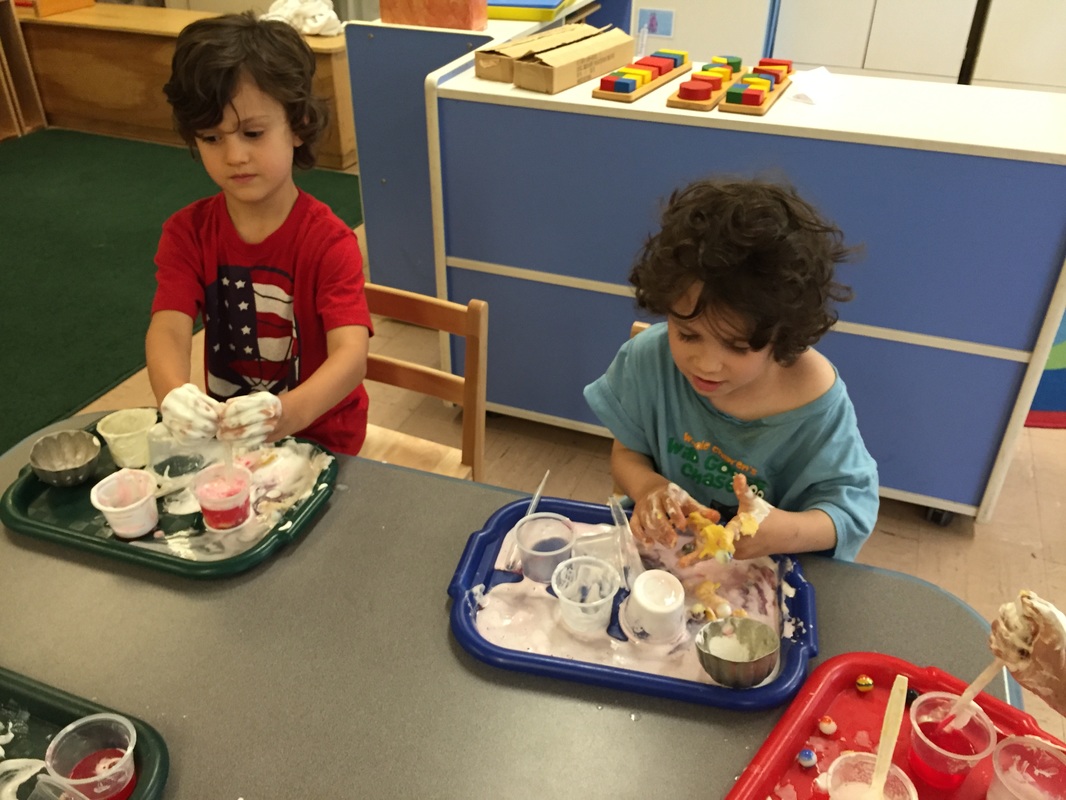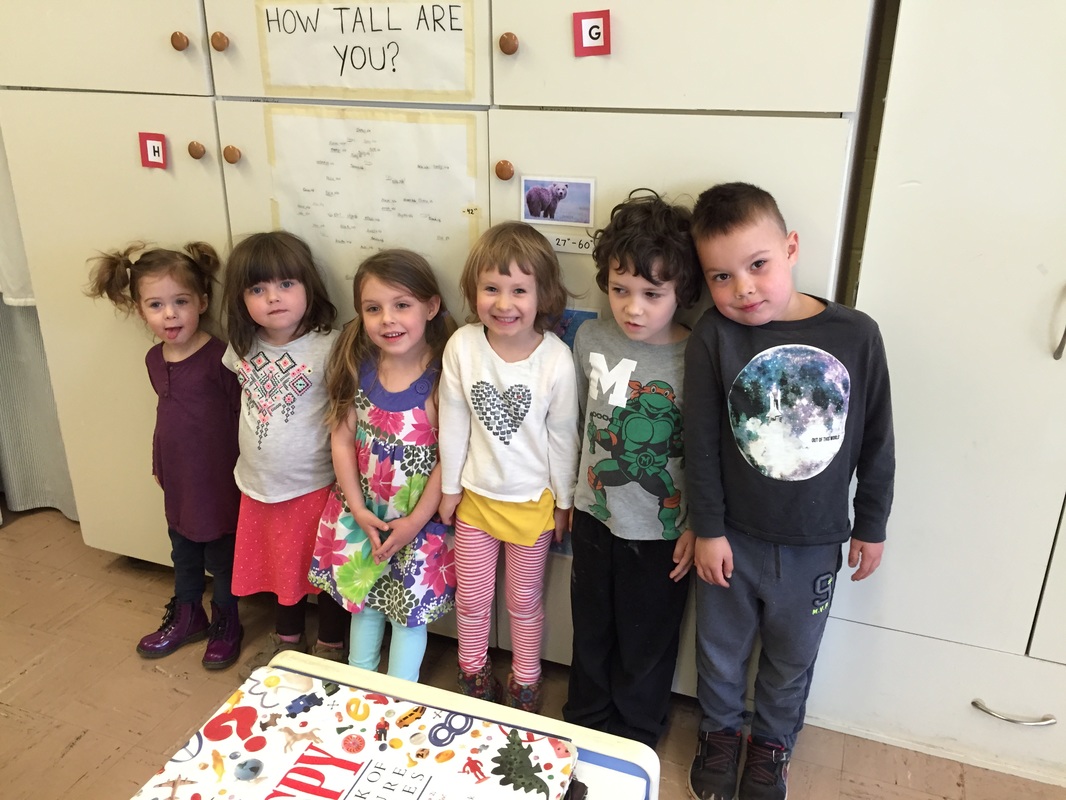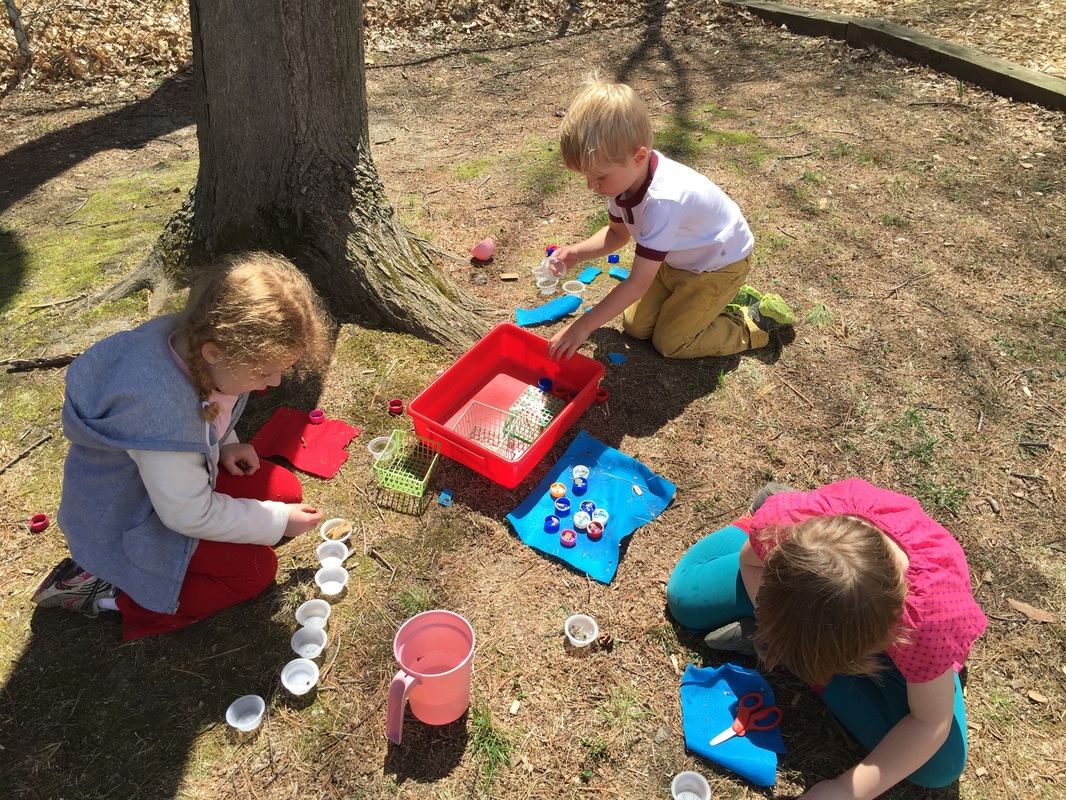STEAM Program
This is an exciting time in early childhood education. While our work here at Cloverdale has always included a creative, hands-on, sensory based curriculum in the domains of science, math and engineering, it is finally being recognized nationally that there are no greater natural scientists and engineers than young children. They are inquisitive and naturally learn as they play. Over the last few years, we’ve been keeping an eye on the growing momentum for more STEM (Science, Technology, Engineering, and Math) education in the early education classroom. Introducing STEM early isn’t just about introducing concepts at a young age, but also modeling a positive attitude about subjects like science and math and helping children feel excited about it. The U.S. Department of Education began the STEM federal initiative for preschool in 2011, thus launching the movement for STEM early education. Because we believe art to be an integral piece of the many ways children creatively express themselves, we now refer to this movement as STEAM (Science, Technology, Engineering, Art and Math).
We are pleased to offer STEAM as an enhancement to our excellent, regular morning program. The “Young Explorers” STEAM program meets Monday-Friday from 12:30-3:30. Each week we will bring to the classroom a STEAM related theme that will be integrated into the activities, in ways that will support the development of children’s abilities, dispositions, and understanding. Children will explore and investigate as they are provided new vocabulary, teacher facilitation, and inquiry-based questions to promote more meaningful critical thinking skills and a deeper understanding in more authentic contexts in the areas of science, math, art, music and technology. Children will demonstrate these practices when they:
We are pleased to offer STEAM as an enhancement to our excellent, regular morning program. The “Young Explorers” STEAM program meets Monday-Friday from 12:30-3:30. Each week we will bring to the classroom a STEAM related theme that will be integrated into the activities, in ways that will support the development of children’s abilities, dispositions, and understanding. Children will explore and investigate as they are provided new vocabulary, teacher facilitation, and inquiry-based questions to promote more meaningful critical thinking skills and a deeper understanding in more authentic contexts in the areas of science, math, art, music and technology. Children will demonstrate these practices when they:
- Ask questions, solve problems/design things
- Plan and carry out investigations
- Make meaning from experiences and collected data
- Use mathematics and computational thinking (count, measure, solve simple addition and subtraction scenarios)
- Construct explanations/theories and evaluate solutions
- Develop and represent their experiences (building, drawing, painting, clay, collage, etc)
- Engage in discussion from evidence (before, during and after investigations)
- Obtain, evaluate, and talk about information learned


